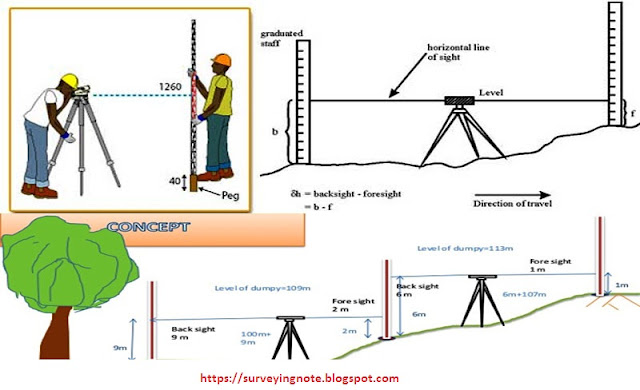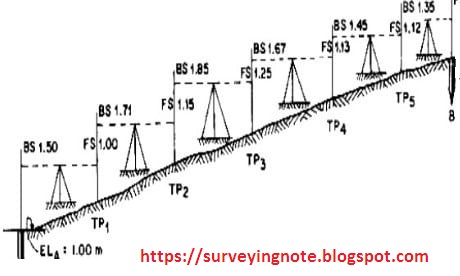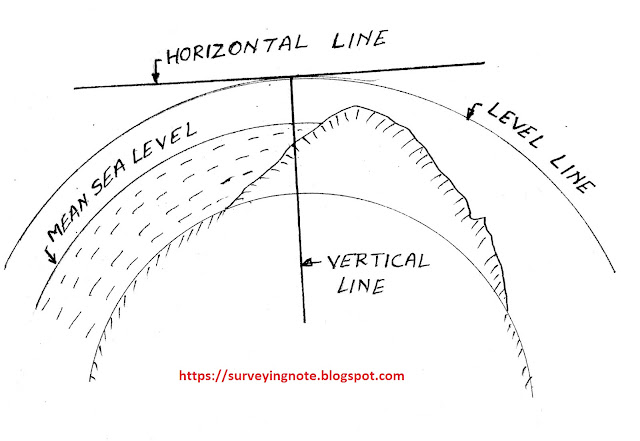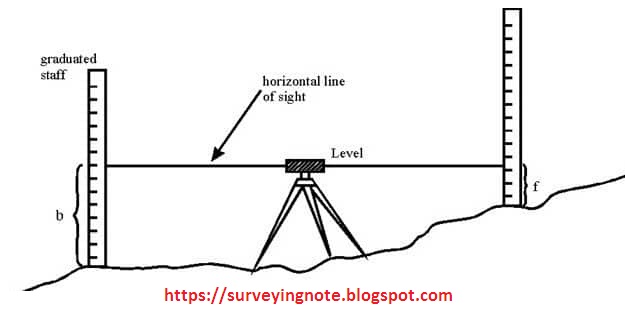LEVELLING SURVEYING
OBJECT
AND USE OF LEVELLING :
OBJECT- The point of leveling is to decide the general statures of various items on or underneath the Surface of the earth and to decide the undulation of the ground surface.
USES- To set up a shape map for fixing locales for repositories, dams, floods, and so on, and to fix the arrangement of streets, railroads, water system waterways, etc.
To decide the heights of various significant focuses on a slope or to know the diminished degrees of various focuses on or underneath the outside of the earth.
To set up a longitudinal area and cross-areas of a venture streets, railroads, so as to decide the volume of earth work.Levelling - leveling reviewing, procedure,instrument,staff,etc
To set up a design map for water flexibly, clean of seepage plans.
To decide the heights of various significant focuses on a slope or to know the diminished degrees of various focuses on or underneath the outside of the earth.
To set up a longitudinal area and cross-areas of a venture streets, railroads, so as to decide the volume of earth work.Levelling - leveling reviewing, procedure,instrument,staff,etc
To set up a design map for water flexibly, clean of seepage plans.
 |
| Levelling Methods |
Leveling (or Leveling) is a piece of checking on, the object of which is: I) to find the statures of given centers in regards to ensured or anticipated datum, and ii) to develop centers at ensured or acknowledged datum. The principle action is required to enable the endeavors to be organized while the subsequent errand is required in the setting out of a wide scope of planning works. Leveling oversees estimations in a vertical plane.Levelling - leveling looking over, procedure,instrument,staff,etc.
Level surface: A dimension surface is characterized as a bended surface which at each point is opposite to the course of gravity at the point. The outside of a still water is a genuinely level surface. Any surface parallel to the mean spheroidal surface of the earth is, thusly, a dimension surface.
Level line: A dimension line is a line lying in a dimension surface. It is, thusly, typical to the plumb line at all focuses.
Horizontal plane: Even plane through a point is a plane distracting to the level surface by then. It is, thusly, opposite to the plumb line through the point.
Horizontal line: It is a straight line tangential to the level line at a point. It is also perpendicular to the plumb line.
Vertical line: It is a line normal to the level line at a point. It is commonly considered to be the line defined by a plumb line.
Datum: Datum is any surface to which rise are alluded. The mean ocean level bears a helpful datum world over, and heights are normally given as such a great amount above or beneath ocean level. Usually progressively helpful, be that as it may, to expect some other datum, uniquely, if just the general height of focuses are required.
Ealivation: The rise of a point on or close to the outside of the earth is its vertical separation above or underneath a subjectively accepted dimension surface or datum. The distinction in rise between two is the vertical separation between the two dimension surface in which the two untruth.
Vertical angle: Vertical angle is an angle between two intersecting lines in a vertical plane. Generally, one of these lines is horizontal.
Mean Sea Level: It is the normal stature of the ocean for all phases of the tides. At a specific spot it is inferred by averaging the hourly tide statures over an extensive stretch of 19 years.
Bench Mark: It is a generally perpetual perspective whose rise regarding some expected datum is known. It is utilized either as a beginning stage for leveling or as a point whereupon to close as a check.
Types of Leveling in Surveying :
Direct Leveling: It is the most usually utilized technique for leveling. In this strategy, estimations are watched straightforwardly from leveling instrument.
In light of the perception focuses and instrument positions direct leveling is isolated into various kinds as pursues:
- Simple leveling
- Differential leveling
- Fly leveling
- Profile leveling
- Precise leveling
- Reciprocal leveling
Simple Leveling: It is a straightforward and essential type of leveling wherein the leveling instrument is set between the focuses which rise is to be find. Leveling poles are put at that focuses and located them through leveling instrument. It is performed just when the focuses are closer to one another with no deterrents.
Differential Leveling: Differential leveling is performed when the separation between two is more. In this procedure, number of bury stations are found and instrument is moved to each station and watched the rise of entomb station focuses. At last distinction between unique two is resolved.
Fly Leveling: Fly leveling is directed when the benchmark is exceptionally a long way from the work station. In such case, a brief seat mark is situated at the work station which is found dependent on the first benchmark. Indeed, even it isn't very exact it is utilized for deciding rough dimension.
 |
| Fly Leveling |
Profile Leveling: Profile leveling is commonly embraced to discover rise of focuses along a line, for example, for street, rails or streams and so forth. For this situation, readings of middle of the road stations are taken and decreased degree of each station is found. From this cross area of the arrangement is drawn.
 |
| Profile leveling |
At a given point, the climatic weight doesn't stay consistent over the span of the day, even throughout 60 minutes. The strategy is, along these lines, moderately wrong and is minimal utilized in reviewing work aside from on observation or exploratory overview.
At a given point, the climatic weight doesn't stay consistent over the span of the day, even throughout 60 minutes. The strategy is, along these lines, moderately wrong and is minimal utilized in reviewing work aside from on observation or exploratory overview.
Trigonometric Levelling (Indirect Levelling): Trigonometric or Indirect leveling is the way toward leveling in which the rises of focuses are processed from the vertical points and even separations estimated in the field, similarly as the length of any side in any triangle can be figured from legitimate trigonometric relations. In an adjusted structure called stadia leveling, generally utilized in mapping, both the distinction in height and the flat separation between the focuses are legitimately figured from the deliberate vertical points and staff readings.
Spirit Levelling (Direct Levelling): It is that part of leveling in which the vertical separations regarding an even line (opposite to the heading of gravity) might be utilized to decide the relative contrast in rise between two neighboring focuses. An even plane of sight digression to level surface anytime is promptly settled by methods for a soul level or a dimension vial. In soul leveling, a soul level and a locating gadget (telescope) are joined and vertical separations are estimated by seeing on graduated bars put on the focuses. The strategy is otherwise called direct leveling. It is the most exact strategy for deciding rises and the one most generally utilized by specialists.
Levelling - levelling surveying, procedure,instrument,staff,etc.
Levelling - levelling surveying, procedure,instrument,staff,etc.
Levelling in Surveying Watch - -
QUESTIONS AND ANSWER
1 The leveling deals with measurement
in
= vertical plane
2 The water surface of a still lake is
also considered
= level surface
3 Level surface is called a
= level line
4 GTS full from
= great trigonometrical survey
5 MSL full from
= mean sea level
6 Mean sea level at
= Pakistan Karachi
7 RL full from
= reduced level
8 The vertical distance of a point
above or below the detum line is
= reduced level
9 What are the type of bench mark
= Gts, permanent, temporary,
arbitrary.
10 The Instrument set-up first staff
reading is
= Backsight reading
11 The Instrument set-up last staff
reading is
=Foresight reading
12 The instrument set-up any staff
reading between the BS and FS is
= Intermediate sight reading
13 The reference point of the RL is
= Bench mark
14 Curvature correction is always
= negative
15 refraction correction is always
= positive
16 Combined correction is always
= negative
17 The datum adopted for india is
= Msl at Karachi
18 The BM established by the survey of
india is known
= GTS BM
19 The surface tangential to a level
surface is
= horizontal surface
20
The line of collimation and axis of the telescope should
= coincide
21 The length of the sopwith
telescopic leveling staff is
= 4m
22 When there is relative movement
between the cross-hairs and staff reading is
= parallax
23 The staff reading taken of a point
of known elevation is termed
= BS reading
24 The internal focusing telescope is
focused by moveing the
= double concave lens
25 By arithmerical check, we can ensure
the accuracy of
= calculation
26 The operation of leveling to
determine the elevation between two points is
= differential leveling
27 The BM fixed at the end of a day’s
work is called
= temporary BM
28 The operation of leveling across
any river is termed
= reciprocal leveling
29 The operation of leveling from any
BM to the starting point of any project is
= fly leveling
30 To eliminate collimation error the
leveling instrument must be placed
= exactly mid-way between the BS and
FS
31 The real image of the object is
formed
= at the centre of the telescope
32 The diaphragm is fitted
= in front of the eye-piece
33 The tangent to the longitudinal
surface of the bubble tube is
= axis of the bubble
34 The sensitiveness of the directly
related to
= the radius of curvature of the
bubble
35 The correction due to curvature in
leveling
= d2/2R
36 The correction for reflection as
applied to the staff reading
= +1/7(d2/2R)
37 With the rise of temperature the
sensitivity of a bubble tube
= decreases.
Surveying Introduction Note -- Read
Plane Table Surveying Note --- Read
Chain Surveying Note -- Read
Compass Surveying Note -- Read
Buy Best Surveyor Book -- Link
Thanks You....
















0 Comments:
Post a Comment